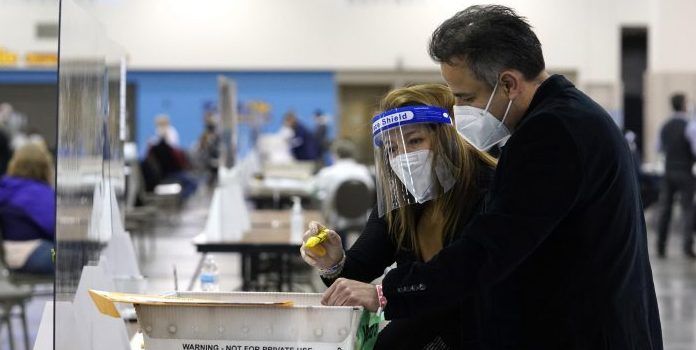(Joshua Paladino, Headline USA) Waukesha County Circuit Judge Michael Aprahamian ruled on Sept. 7 that Wisconsin’s county and municipal election clerks cannot “cure” incomplete absentee ballots envelopes and count the votes inside them, the Gateway Pundit reported.
The ruling comes two weeks before the state’s absentee ballot deadline of Sept. 22, on which day election clerks must begin to mail ballots to voters who have active requests on file.
Since 2016, the Wisconsin Elections Commission has instructed election officials to follow an agency-created rule, which let them fill in missing or inaccurate information on absentee ballot witness certification envelopes.
Wisconsin’s election laws do not give clerks the right to complete absentee ballot envelopes, though it does allow them to contact voters about their incomplete ballot and to give them the option to correct it or vote in person on election day.
The decision of Aprahamian, whom former Republican Gov. Scott Walker appointed in 2014, follows a prolonged legislative and legal battle over the issue.
The Republican-controlled Joint Committee for Review and Administrative Rules voted 6-4, along partisan lines, to order the WEC to stop instructing election clerks to cure incomplete ballots.
The Wisconsin Elections Commission rejected the vote and stated that it would continue to tell clerks to correct inaccurate ballots and fill in incomplete ballots.
With the election agency refusing to follow both state law and the legislature’s explicit interpretation of state law, Republicans filed a lawsuit.
Aprahamian agreed with the Republicans when he wrote in his decision that the WEC maintained a “stubborn and unjustified adherence to its guidance” despite its obvious violation of the state’s laws.
Democrats hope to suspend the decision’s enforcement until the Wisconsin Supreme Court can rule on the issue.
Although the state Supreme Court ruled against ballot drop-boxes in July and may rule against “ballot curing,” the appeal would likely delay the decision until after the November midterms, allowing fraudulent votes to affect one more election.
November’s midterm includes one of the most hotly contested Senate races, with Republican Sen. Ron Johnson running neck-and-neck with Democrat Lt. Gov. Mandela Barnes.
Democrat Gov. Tony Evers also is up for re-election against Trump-endorsed conservative challenger Tim Michels, a retired army major who now oversees Wisconsin’s largest construction company. That race is also likely to come down to a razor-thin margin, with Michels trailing in polls by less than 2%.

